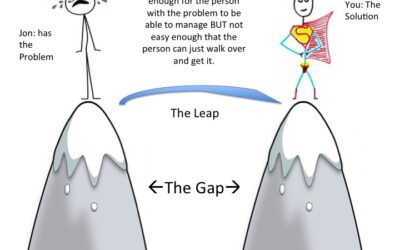Critical Thinking Skills At Work Place

Critical thinking is ability to think in an organized and rational manner in order to understand connections between ideas and facts of the subject matter within the context of the circumstances in the environment. It is the mode of thinking through any subject matter, content, or problems in which the thinker studies and improves the quality of his or her thinking, by skillfully researching, analyzing and constructing its out comes. Because, it involves self discipline, self directed, motivated, and corrective thinking, within the context of constantly changing complex environment.
It provides the baseline processes that support thinking through all the sides of the subject matter, to enable appreciate careful application of reasoning, to know if the outcome is true or false. It means weighing up all the sides of the vital evidences, to be creative, innovative and adaptive, in respect of individual, organizations or group of companies’ journey in a challenging environment.
The aim of critical thinking is to access predictable strength and weaknesses insight, on subject matter, contents and problems and promote knowledge driven hard work, aim higher, and work faster. This is intentional processes that should provide a wide range of application in the world of work.
Critical thinkers are people with scientific, technical knowledge and attitude with readiness to take a structured look at the subject matter, contents, or problems in order to act in an organized manner:
- To understand links between ideas and facts, with extension to information, data, abstraction and realities.
- To determine the importance and relevance of argument and ideas.
- To recognize, build and appraise arguments or performances.
- To identify inconsistencies and errors in reasoning.
- To approach problems in a consistency and systematic way.
- To reflect on the justification of their own assumptions, beliefs, and values.
Critical thinkers at workplace are leaders, managers, teams, and the entire Workforce, with primary task as people at the centre of change in the environment to identify its influences, understand them, to respond to them with:
- Capacity to understand organizations vision, mission, objectives and goals.
- Capacities to ask questions on customers’ situations and generate facts and information about its journey in market.
- Capacities to make analysis of situations and generate data to solve strategic issues.
- Capacities to evaluate processes and make personal judgment for creative direction.
Within these context, critical thinking provide the baseline for an organization to enter a business market with ideas and ask objective questions about its journey, in order to define its purpose, scope, direction and vision in market.
Ideas are known to be crafted in the following:
- Confused opinions.
- Critical thinking bias.
- Emotional thinking.
- Assumptions.
- Reframing of issues.
- Separating opinion from facts.
- Broadening understanding.
- Recognizing assumption scenario.
- Being reflective and reasonable.
- Thinking critically.
- Miss interpretation of statistics.
Research processes focuses on descriptive questioning of past experiences to be aware, of where you are coming from, where you are currently, and where you want to go to; in other to generate researchable facts.
Intelligent questions are product of observations thinking, with survey and experiment actions to generate facts from ideas.
Analyses are actions taken to generate database information, for strategic gaps or problems solving. It provides essential connections between facts, abstraction and realities which represent problem identification, and positive responses to change management, challenges through, reflective thinking approach.
Evaluations are processes of measurement, and personal judgment, necessary to guide internal resistances to production efficiencies, and present a good strategic fit, for targeted external opportunities match. Also to guide resistances to external opportunities, by mitigating its influences, for a creative outcome to prevail.
It provides the platform for process integration in terms of planning, presentations and organizing by thinking through processes of reflective and communication thinking.
Stakeholders interest alignment in terms of customer values satisfaction and relationship retention.
Organizations interests are specified as:
- Profit
- Increase sales
- Increase market share
- Increase returns on investment.
- Strategies alignment for growing profit abilities over long term period in market. The route map of sustainable growth achievement in market.
- Strategic objectives analysis.
- Current objectives analysis.
- Strategic goals performances budgeting.
- Strategic performances goals allocation.
- Strategic performances tactics involves Relationship management processes.
- Strategic management control processes.
CRITICAL THINKING
At workplace context is intentional process with wide range of skills applications that require training, consulting and management services to ensure your organization is positioned for creating, communicating, delivering and exchanging offerings that meet customer values, at times like this, where the new normal responses to change is inevitable.
PROCESSING STEPS TO CRITICAL THINKING:
- Identify the problem
- Generate facts finding options arguments
- Generate data based information
- Analyze and evaluate data.
- Establish significance.
- Make decisions and reach conclusions.
ADVANTAGES OF CRITICAL THINKING
- It allows you to form your own opinions and engage with materials beyond superficial levels by strengthening your focus on intelligent discussions.
- It allows you to engage in worthy argument and back it up.
- It helps you to evaluate your work.
- It allows you to develop intellectually.
- It helps you to take hard decisions.
- It allows you to compare pros and cons.
In summary,
- problems solving;
- Decisions making;
- And result creating processes;
Are the core touch points of critical thinking at work place.
Practical model of these processes, and are available for training at operations, Business, and strategic levels of engagement to consolidate the values of our discussion.
Sylmaa Consulting
+234-8066-691-059
